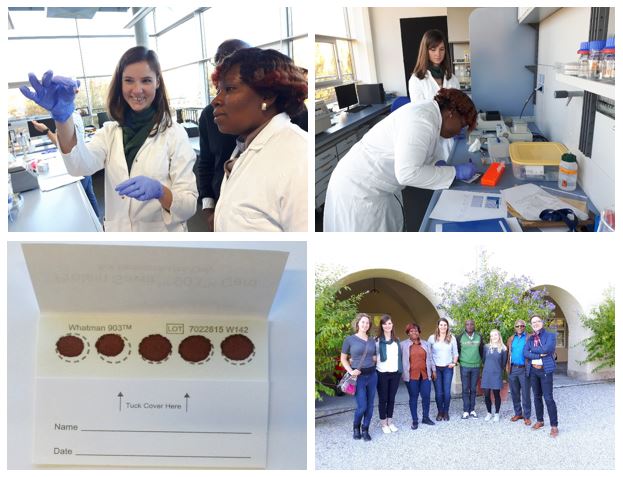In October, two researchers from INRAB, the National Institute of Agricultural Research of Benin visited and received hands-on training at the Technical University of Munich (TUM) laboratory. During a one-week stay, they were introduced to a blood analysis method established by the nutritional Physiology at TUM. They learnt to prepare and analyze blood samples, and they also took part in a general presentation on laboratory security in Germany.
This visit is part of a collaborative effort conducted within the framework of the Program of Accompanying Research for Agricultural Innovation (PARI), in which researchers from TUM and INRAB have collected blood samples from 720 Beninese households, including those of men, women and children under five. These samples will be used to test the iron status of the population using an ELISA-based photometric measurement of soluble transferring receptors (sTfR).
The ELISA is performed on samples of capillary blood on filter cards. These samples called dried blood spots (DBS) can be collected without the help of medically trained persons, simply by pricking a fingertip with a disposable lancet, dropping small amounts of blood (ca 30µl per spot) onto a paper card and drying them at room temperature.

